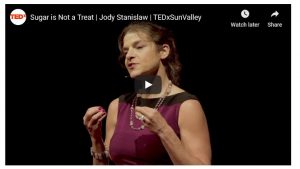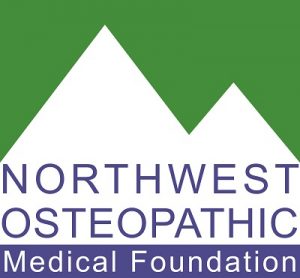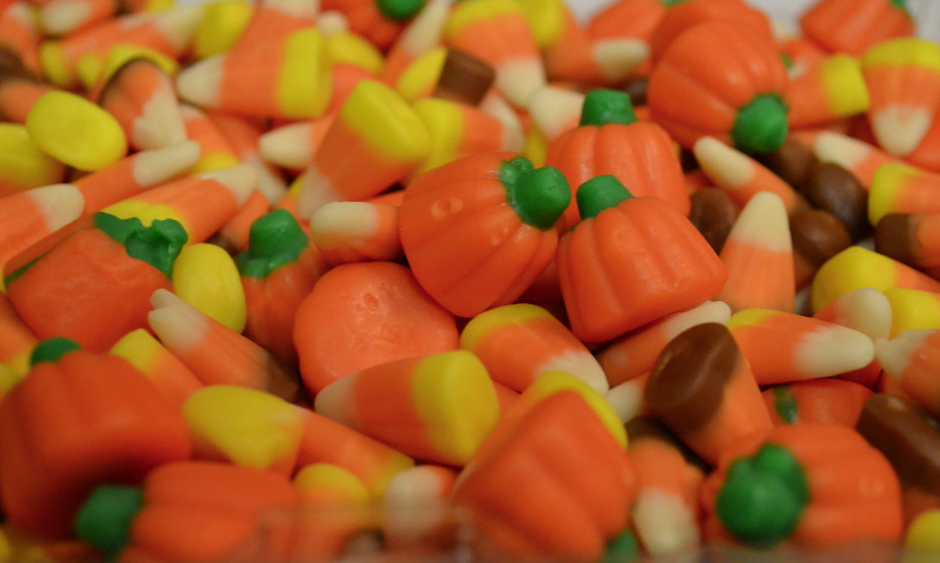
By Linda Tate, Communications Director, Northwest Osteopathic Medical Foundation
With this candy-coated holiday today, we thought this would be a good time to talk about sugar!
I recently heard someone say, “Sugar is not a treat“. That really threw me for a loop. As a child, it was presented as a treat. “If you’re good, you can have a cookie”; “Eat all your dinner and you can have dessert”; and my favorite, “You have a sore throat and cough? Here, take a spoonful of sugar after you swallow that horrible cough syrup.”
I wasn’t allowed to trick or treat as a child. My parents didn’t trust the candy. Instead, my sisters took me from the front door to the back door, and back and forth, until my sack was full. I thought this was how it was done. Imagine my embarrassment when I started school and lost the argument! My generation, and even my children’s generation, didn’t understand how harmful sugar could be. We wallowed in it.
Jody Stanislaw, ND, CDE says this about sugar, “Unfortunately, sugar is hiding in many of today’s most common foods — meaning not only in obvious processed junk foods, but also in many common foods, as well as even ones labeled as ‘healthy.’ Code words for sugar that are often seen in ingredients lists include:
Agave
Coconut Sugar
Brown Sugar
Fruit Juice Concentrates
Honey
Malt Syrup
Maple Syrup
Molasses
Raw Sugar
Fructose
Do not be fooled. These all mean: sugar.
She goes on, “I want to clarify that the sugar I am referring to is ‘added-sugar.’ I was not referring to the naturally occurring sugars found in whole foods grown in nature. There are only four categories of these nature-made carbohydrates:
Fruit
Vegetables
Whole Grains
Legumes
These foods, when consumed in their whole-food form, are an integral part of a healthy diet.”
So why is sugar so bad for us? The answer lies in the pancreas. Our pancreas dumps something called “insulin” whenever sugar is detected in the body. The insulin takes the excess sugar out of the blood and feeds it to your liver, muscles, or stores it as fat.
If you take in too much sugar, your pancreas can be damaged due to overuse. We need our pancreas, or a substitute for insulin, to stay alive. When our pancreas has been damaged, we get what’s called Pre Diabetes, or Type 2 Diabetes, and at that point we must put that insulin into our bodies ourselves because our pancreas can no longer do it for us.
Cake and ice cream are very obvious sugar sources, but what about the not so obvious sources of sugar, such as:
Yogurt
Granola
Cereal
Bread
Pasta & Pasta Sauce
Salad Dressing
Soda & Energy Drinks
Alcohol — even when used in moderation.
Reversing damage to our pancreas in pre-diabetes and type 2 diabetes is possible, especially when caught early, through dietary and lifestyle changes, but you have to be committed to changing your lifestyle. We all know how hard that is to do.
So, when your ghosts and goblins come home with that pillowcase of candy tonight, keep these things in mind.
Your kids don’t have to grow up on sugar the way we did.
The younger your child is when you wean them off sugar, the better.
You don’t miss what you’ve never had.
Remember, sugar is not a treat… it’s a short term rush, followed by a lifetime of addiction and health issues. Not a gift to give a child.
We now know better, so we need to do better.
The Foundation wishes you and yours a very safe and healthy holiday!


This blog should not be considered to be medical advice. Your personal health is best discussed one-on-one with your personal physician. Rather, this blog is intended to highlight the distinctive philosophy and practice of osteopathic medicine as expressed by the author and does not necessarily represent the opinion of the Northwest Osteopathic Medical Foundation, or other Osteopathic physicians. The information and opinions are solely those of the author. For more information, go to www.nwosteo.org.


